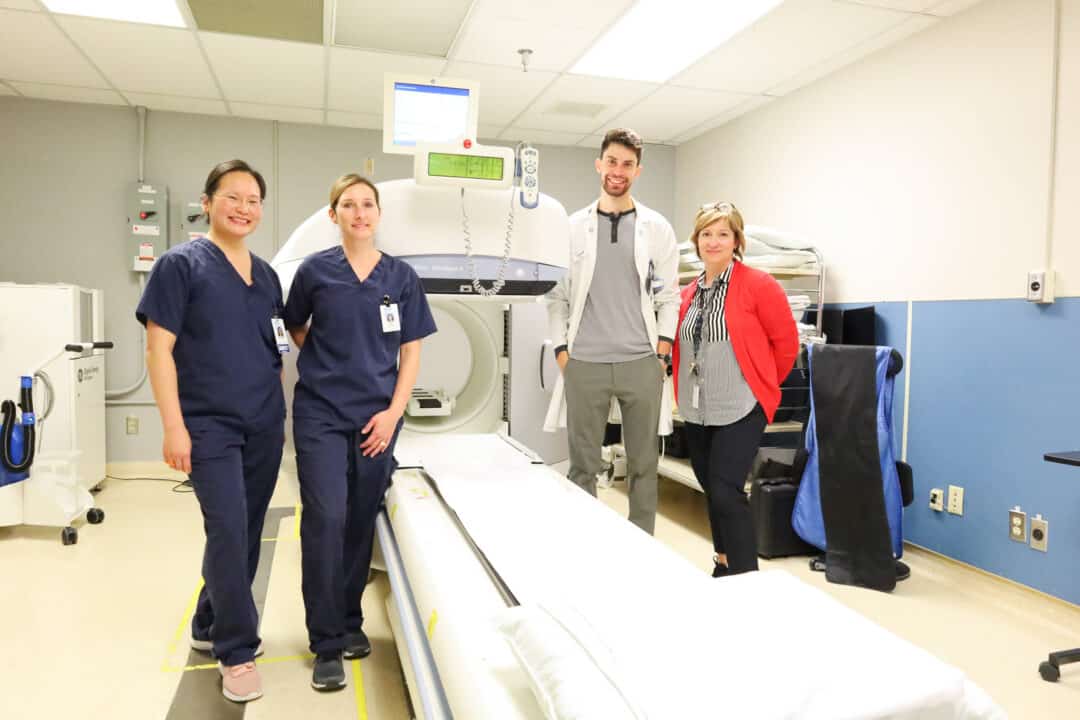Nuclear Medicine
Nuclear Medicine scans are safe and non-invasive. Nuclear Medicine involves the use of small amounts of radioactive materials (tracers) to help diagnose and treat a variety of diseases. Nuclear Medicine exams involve the injection, inhalation, or swallowing of radioactive materials.
Specialized cameras detect the energy released by the tracer to generate images of the body or specific organs or tissues. The timing of your images is dependent on the type of organ/tissue being examined and the length of time for the tracer to localize. Nuclear Medicine studies provide information on organ/ tissue structure and function. These images are then reviewed by the Nuclear Medicine physician.
The radioactive tracer loses its energy rapidly and is eliminated naturally by the body. To reduce the time it takes for this to occur, you should drink plenty of fluids and void frequently.
Nuclear Medicine can provide information about many organs and organ systems including skeletal cardiovascular, renal, gastrointestinal, respiratory, and endocrine studies.
Click here for further patient information about Nuclear Medicine.
